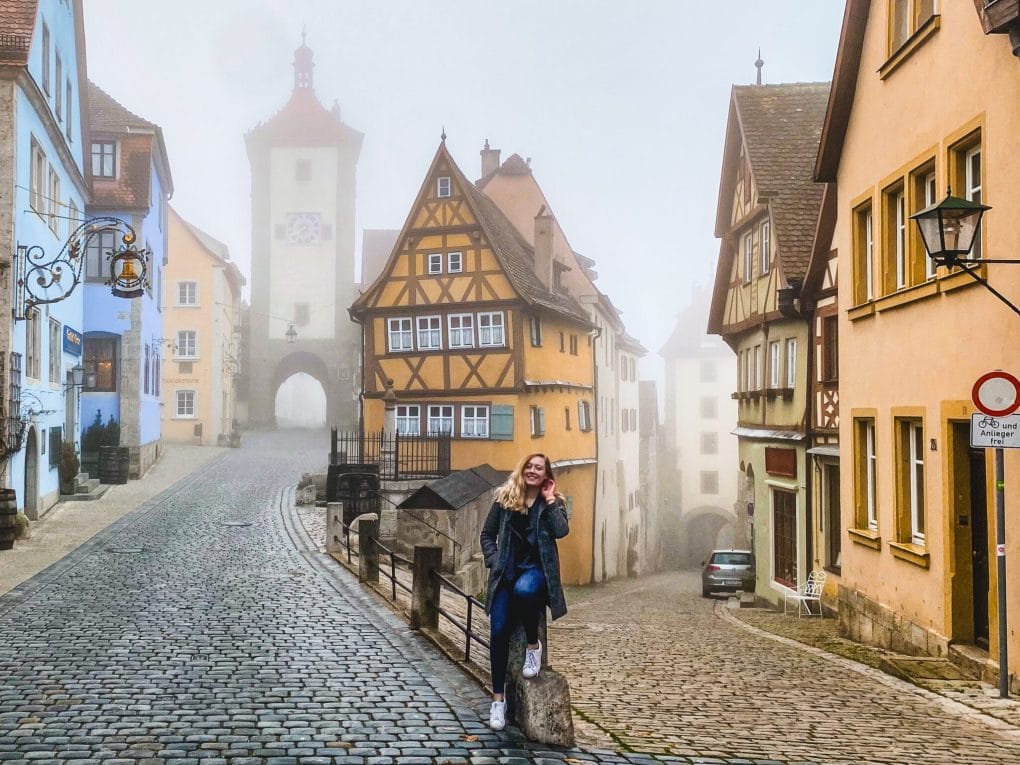Get off the beaten path and make time to see some of the most beautiful towns in Germany that are equal parts magical and charming.
After spending a cumulative 3.5 years living in Europe, I’ve realized that the small towns are where it’s at, especially in Germany!
Don’t get me wrong, there are some pretty beautiful cities in Germany to see and explore, but the country’s small towns have an undeniable allure. From the half-timber buildings and the narrow cobblestone alleys, these little getaways are a slice of days gone by that you can’t experience in a big city.
If you’d like to experience a quieter and more scenic side of Germany, consider these beautiful small towns that’ll transport you to your very own fairy tale.
Read more: Best Apps for Germany Travel and Life Abroad
This post may contain affiliate links, meaning at no additional cost to you, if you click my links and make a purchase, I may earn a small commission. Learn more on my disclosure page. Thank you for your support!
16 Most Beautiful Towns in Germany For an Ultimate Fairytale Experience
A city in Germany is typically considered anywhere with more than 100.000 inhabitants. In the spirit of sharing some of the most beautiful small towns in Germany, this list shares destinations with a population of around 50,000 people or less.
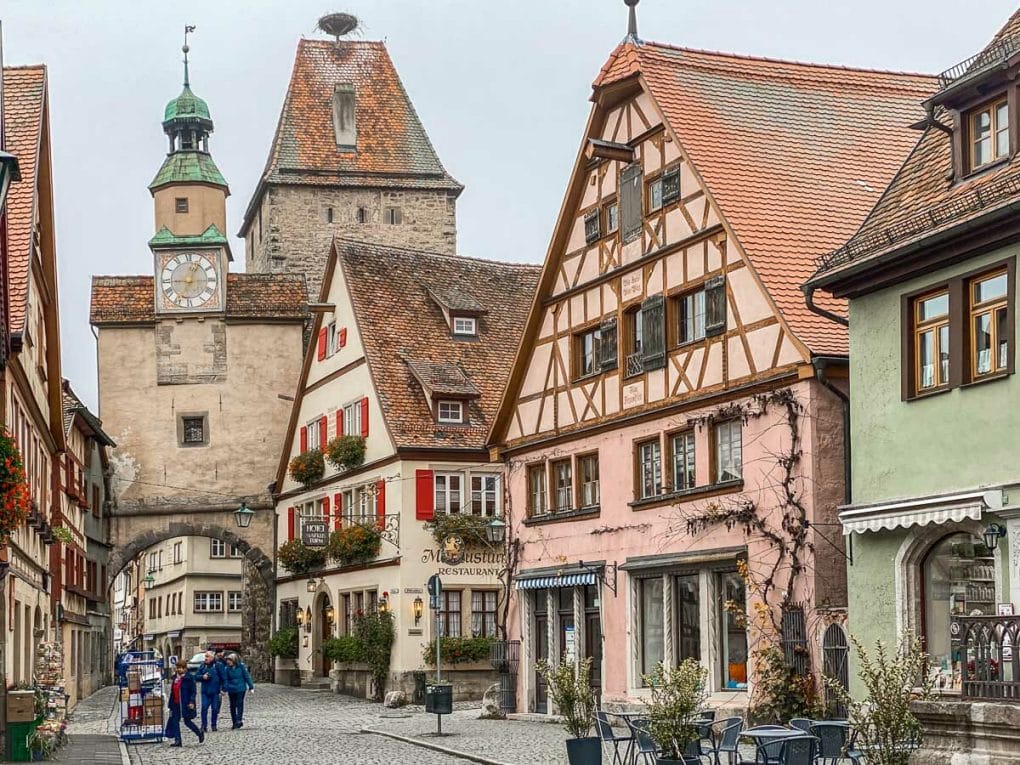
1. Rothenburg ob der Tauber, Bavaria
Population: 10,900
Rothenburg ob der Tauber is a well-preserved medieval gem along Germany’s Romantic Road. This small town enchants visitors with its cobblestone streets, half-timbered houses, and the iconic Plönlein square that may have inspired a background in Disney’s Pinocchio.
Rothenburg is one of only three medieval towns in Germany with a fully intact wall, which you can actually walk and enjoy, offering panoramic views.
Come Christmastime, the town transforms into a festive wonderland, hosting one of the country’s favorite Christmas markets. While there, try a Schneeball and cross off all the best things to do in Rothenburg.
Read more: Best Places to Stay in Rothenburg ob der Tauber
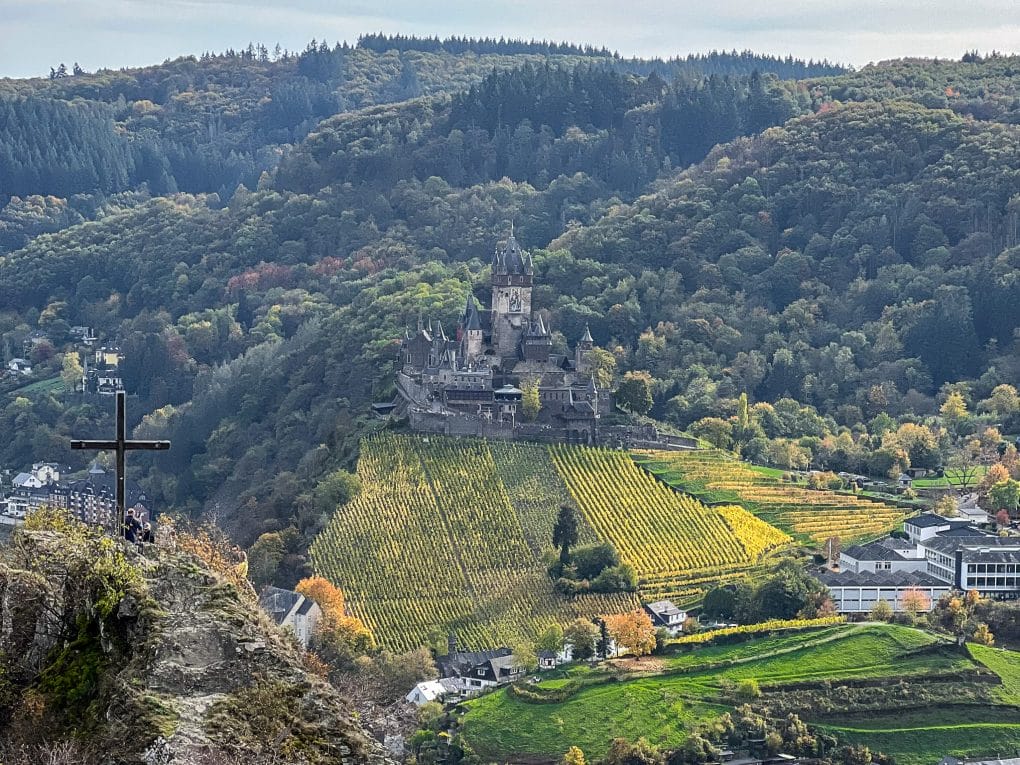
2. Cochem, Rhineland-Palatinate
Population: 5,200
Nestled on the banks of the Mosel River Valley, Cochem is famed for the Reichsburg Cochem castle, perched on a hill overlooking the charming Old Town. The town’s picturesque vineyards, riverside promenades, and medieval atmosphere create a storybook setting.
Some exceptionally unique things to do in Cochem include the knight’s dinner hosted at the castle and the cable car ride to a picture-perfect lookout point.
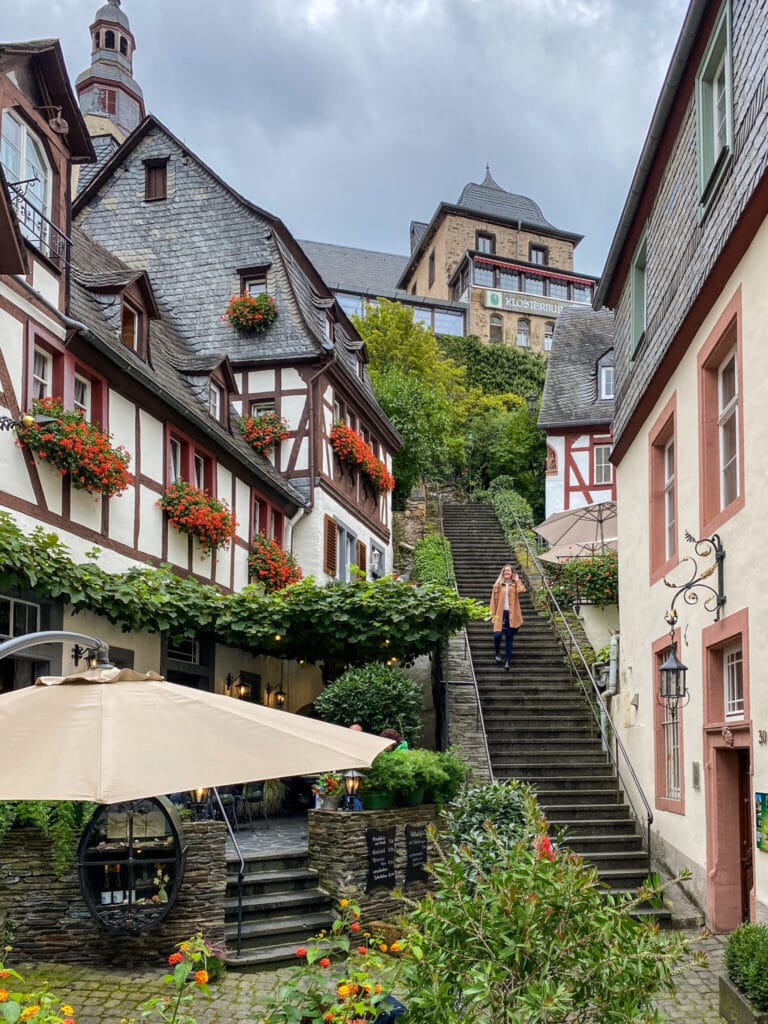
3. Beilstein, Baden-Württemberg
Population: 145
Beilstein may be tiny, but it sure is picturesque. It’s so picturesque, in fact, that it’s nicknamed the “Sleeping Beauty of the Mosel,” no doubt thanks to its cobblestone streets and half-timbered houses.
From the top of a hill, the ruins of Castle Metternich overlook the meandering Mosel River. Visitors can explore the charming streets, visit the historic St. Christopher’s Church, and enjoy a wine tasting in a historic cellar.
Read more: When is the Worst Time to Visit Germany?
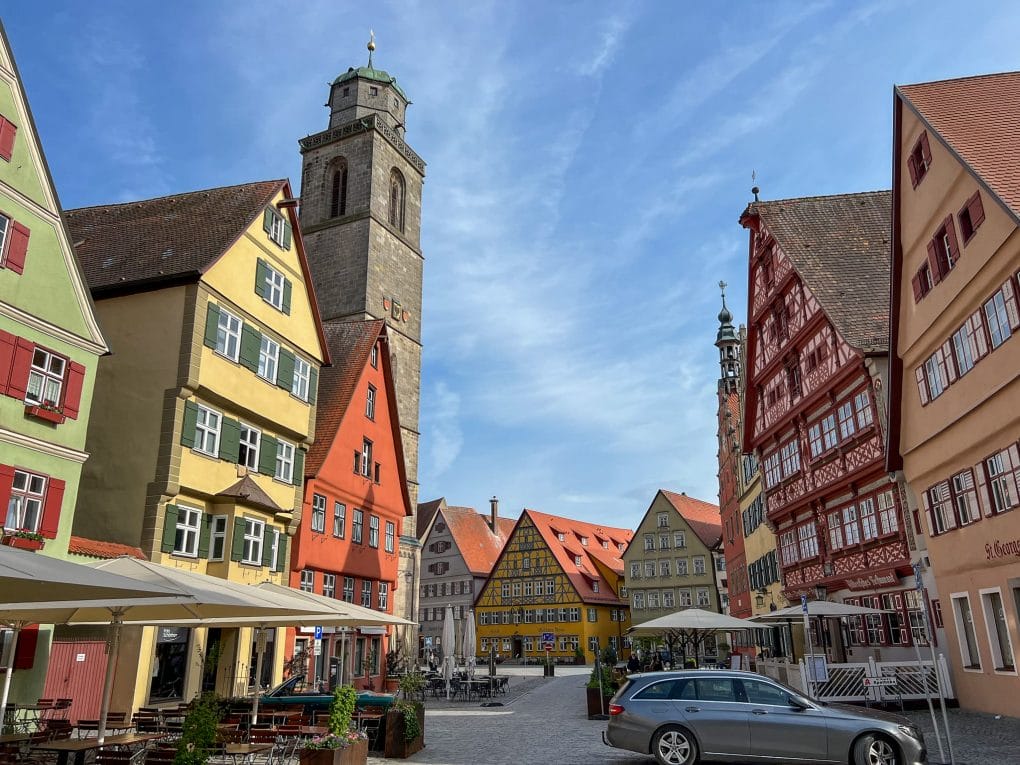
4. Dinkelsbühl, Bavaria
Population: 12,100
Dinkelsbühl is a stop along the Romantic Road that travels through Southern Germany’s most beautiful small towns.
The town’s well-preserved city walls, towers, and gates provide a glimpse into its rich historical past. No visit to Dinkelsbuhl is complete without popping into the historic St. George’s Minster.
Visitors should also keep their eyes peeled for cranes who call this colorful small town home, one of my favorite sights in Dinkelsbuhl!
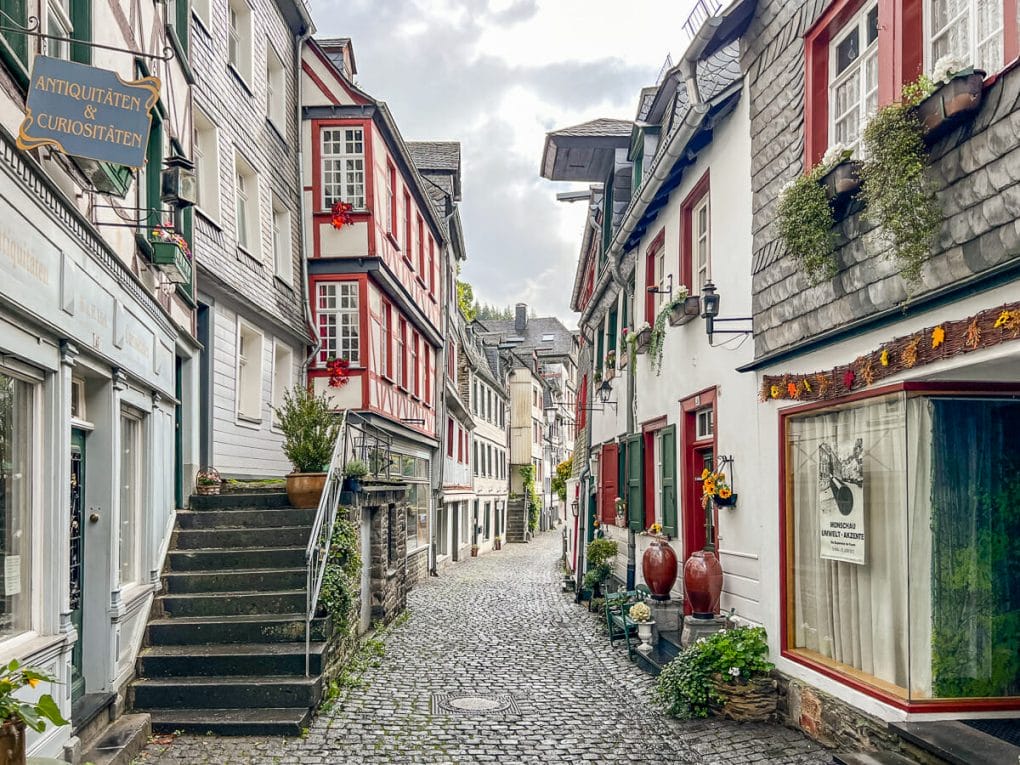
5. Monschau, North Rhine-Westphalia
Population: 12,400
Nestled in the Eifel region along the Belgian border, Monschau captivates with its romantic ambiance. When you visit, you’ll immediately be taken by the charming half-timbered houses and narrow cobblestone streets.
As you walk through the town, the hum of the passing Rur River creates a lovely ambiance and beautiful backdrop. Some of the best things to do in Monschau include visiting the famed glass-blowing shop and the medieval Monschau Castle. I also highly recommend trying the Belgian-inspired fare in Monschau, like mustard soup and meatballs.
Read more: Pros and Cons of Living in Germany
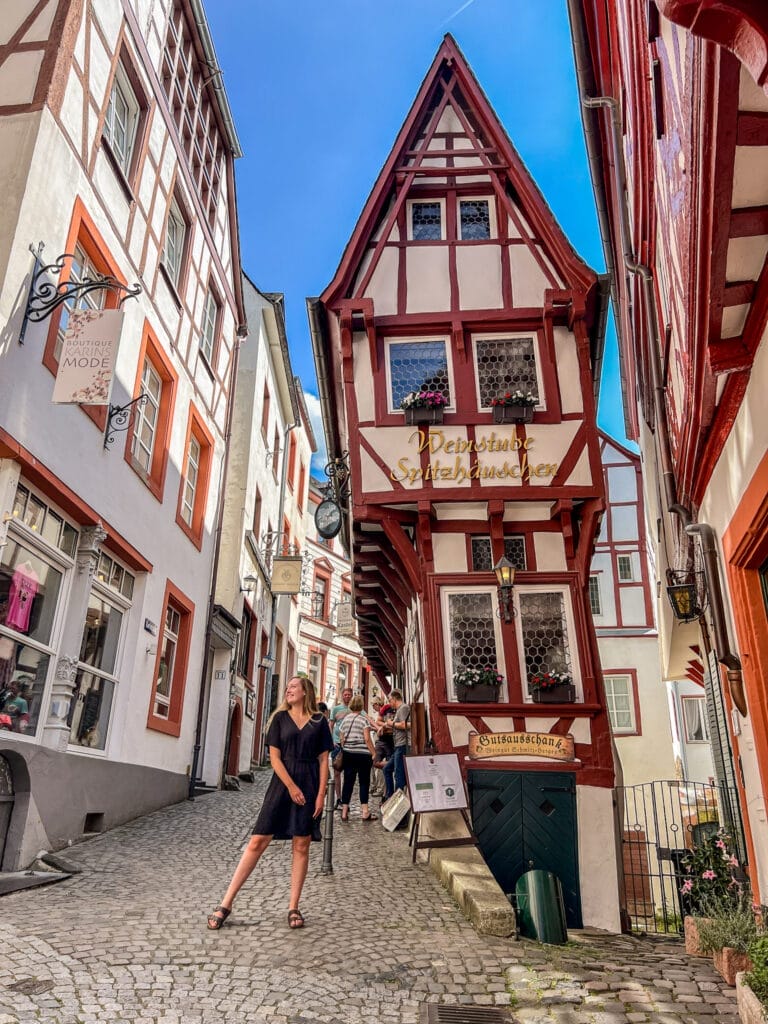
6. Bernkastel Kues, Rhineland-Palatinate
Population: 7,100
Situated along the Mosel River, Bernkastel Kues is known for its charming timber-framed houses, medieval market square, and the Burg Landshut castle ruins that overlook the old town. It’s so picturesque that it even appeared, although very short, in Harry Potter and the Deathly Hallows Part 1.
Bernkastel Kues is an excellent place for wine enthusiasts, offering vineyard-covered hills and historic wine cellars where you can sip and nosh to your heart’s content. Other things to do in Bernkastel include hiking, taking a river cruise, and visiting its Christmas market.
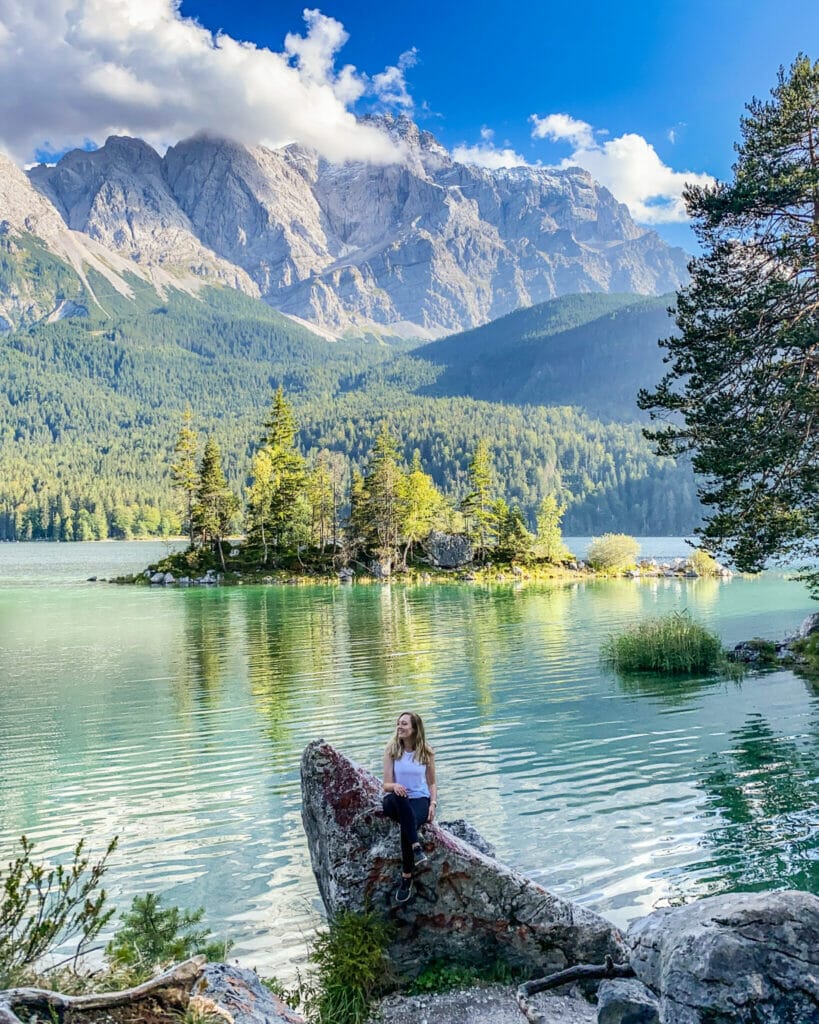
7. Garmisch-Partenkirchen, Bavaria
Population: 27,250
Garmisch-Partenkirchen is a picturesque destination at the base of Germany’s highest mountain, the Zugspitze. In other words, its draw is its proximity to some of the most landscapes in the Bavarian Alps.
Outdoor enthusiasts can enjoy skiing in winter, hiking in summer, and the charming Alpine architecture of the town. While there, be sure to also make time for the stunning Partnach Gorge and the bright blue waters of Eibsee (lake).
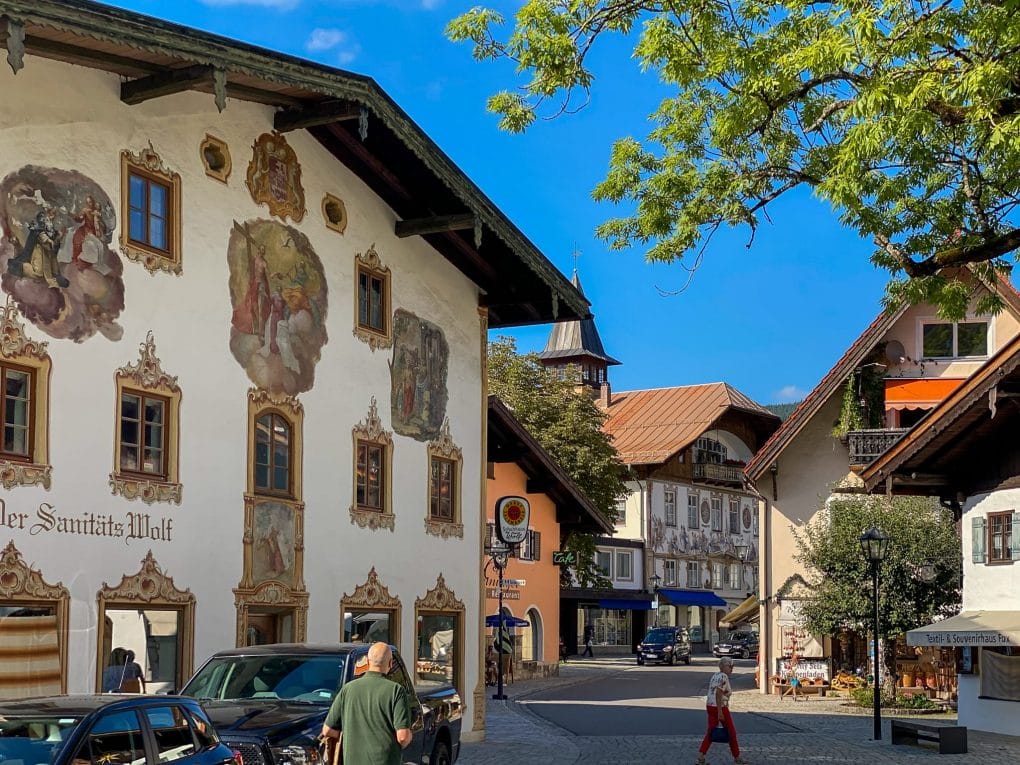
8. Oberammergau, Bavaria
Population: 5,400
Oberammergau is a small Bavarian village less than 1.5 hours from Munich. It’s best known for its Bavarian-style chalets painted with eye-catching frescos and its wood carving tradition that carries on today.
The town also hosts their Passion Play, an event showcasing the Passion of Jesusthat has been put on every ten years since 1634! Other noteworthy things to do in Oberammergau include riding the Alpine coaster, visiting the ornate Ettal Abbey, and taking advantage of the surrounding Ammergau Alps.
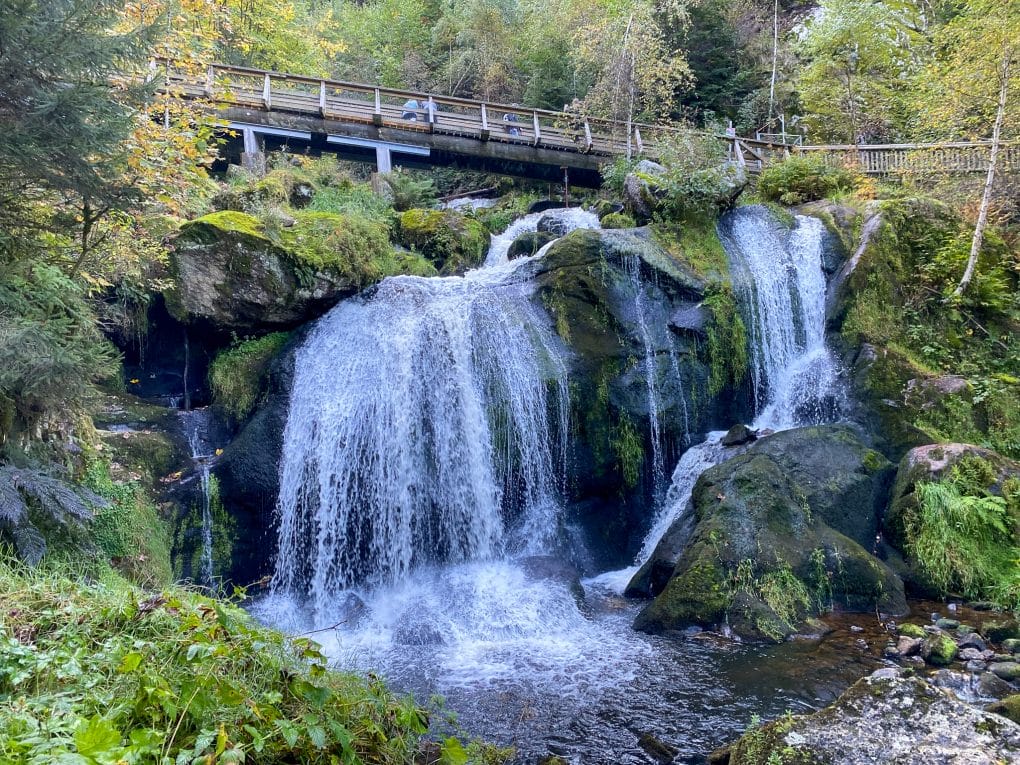
9. Triberg, Baden-Württemberg
Population: 4,650
Triberg is a classic Black Forest getaway, believed to be the origin of the hand-built, wooden cuckoo clock tradition. This beautiful town in Germany may be small, but it’s also home to the country’s tallest waterfall and the world’s largest (and smallest) cuckoo clocks!
Visitors should also make time to visit the Black Forest Museum and eat some of the region’s delicacies, including Black Forest cake and Black Forest ham!
Read more: Best Things to Buy in Germany
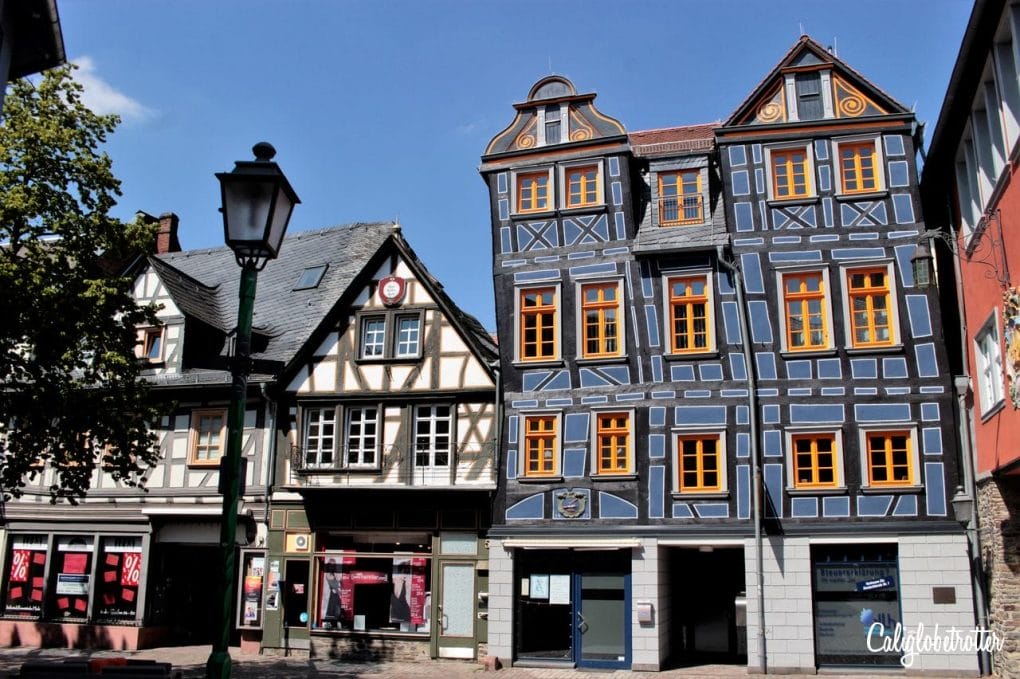
10. Idstein, Hessen
Population: 25,000
Idstein is a beautiful small town in Germany, nestled in the Taunus Mountains. It’s best known for its timber-frame homes, which stand out thanks to the intricate painted details that adorn them. It’s even along the German Timber-Frame Road, which takes visitors to Germany’s most iconic places to see traditional architecture.
Some of the best things to do in Idstein include learning about the witch trails that occurred there, the crooked house, and the town’s castle and palace. A day trip from Frankfurt to Idstein is the best way to see this pretty German town.
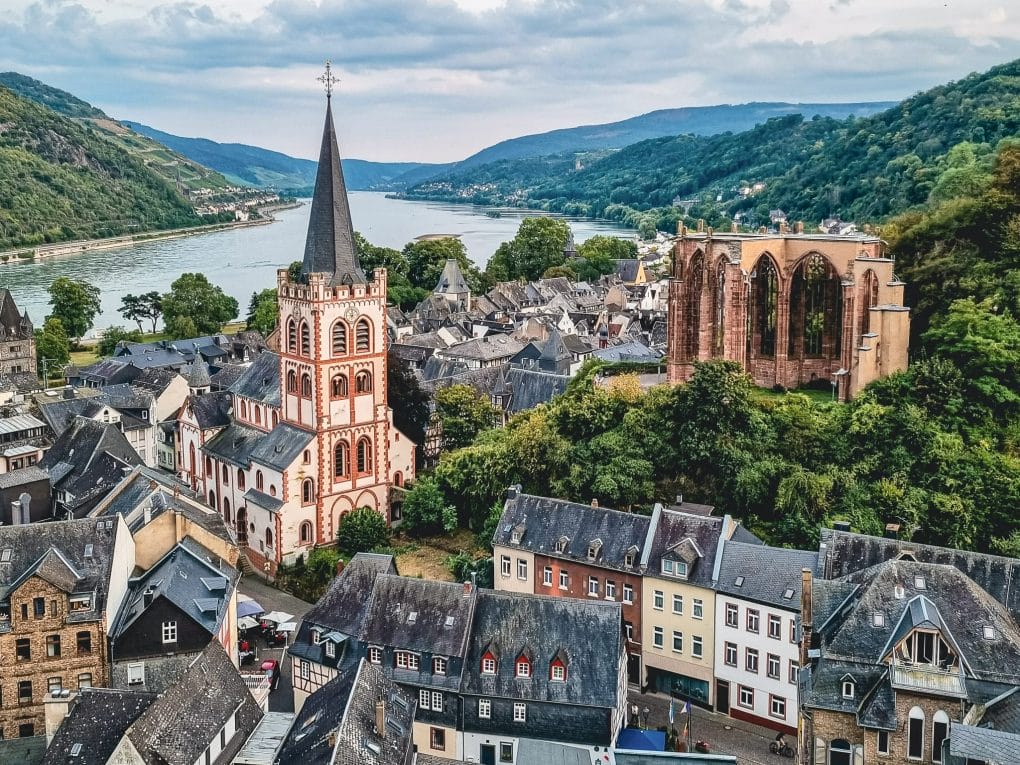
11. Bacharach, Rhineland-Palatinate
Population: 1,850
Nestled along the Rhine River, you’ll find many little towns worth exploring, and Bacharach is one of them! This well-preserved medieval town is known for its eye-catching half-timbered houses, and the 12th-century Stahleck Castle turned hostel (but is still open to visit and wander the grounds).
You can also expect classic Rhein River Valley sights like lush vineyard-covered hills and Birds Eye views of the peaceful Rhine Gorge.
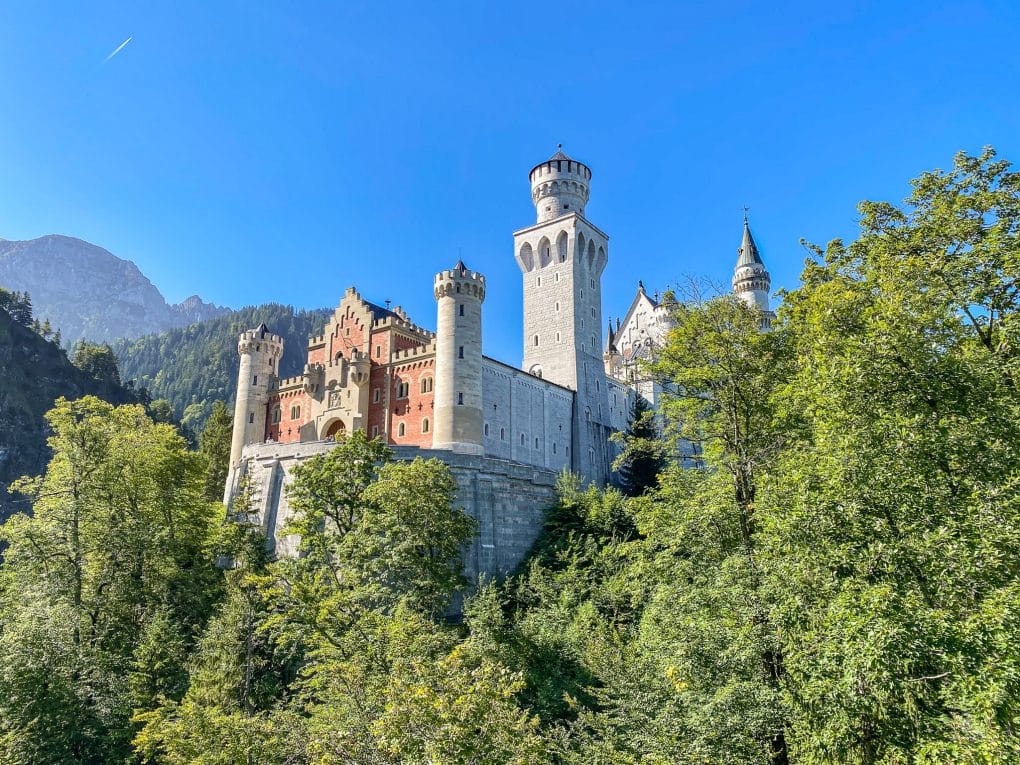
12. Füssen, Bavaria
Population: 16,000
Füssen is a charming Bavarian best known as the gateway to Hohenschwangau and Neuschwanstein Castle, the inspiration for Disney’s Cinderella Castle.
The town’s historic Old Town offers a low key place to stay while soaking up the beauty of the nearby mountains. Füssen’s top attractions include the Lechfall waterfall and the scenic Lake Forggensee.

13. Quedlinburg, Saxony-Anhalt
Population: 24,000
Listed as a UNESCO World Heritage site, Quedlinburg boasts an astounding 2,000+ half-timbered houses that are a beautiful sight to see and a testament to this small German town’s ancient history. Quedlinburg was established over 1,000 years ago and was previously ruled by the Saxonian-Ottonians, Germanic rulers from the 1st century.
While there, be sure to also make time for the other best things to do in Quedlinburg, which includes exploring the castle, historic Market Square, and The Collegiate Church of St Servatius, which is considered one of the masterpieces of Romanesque architecture.
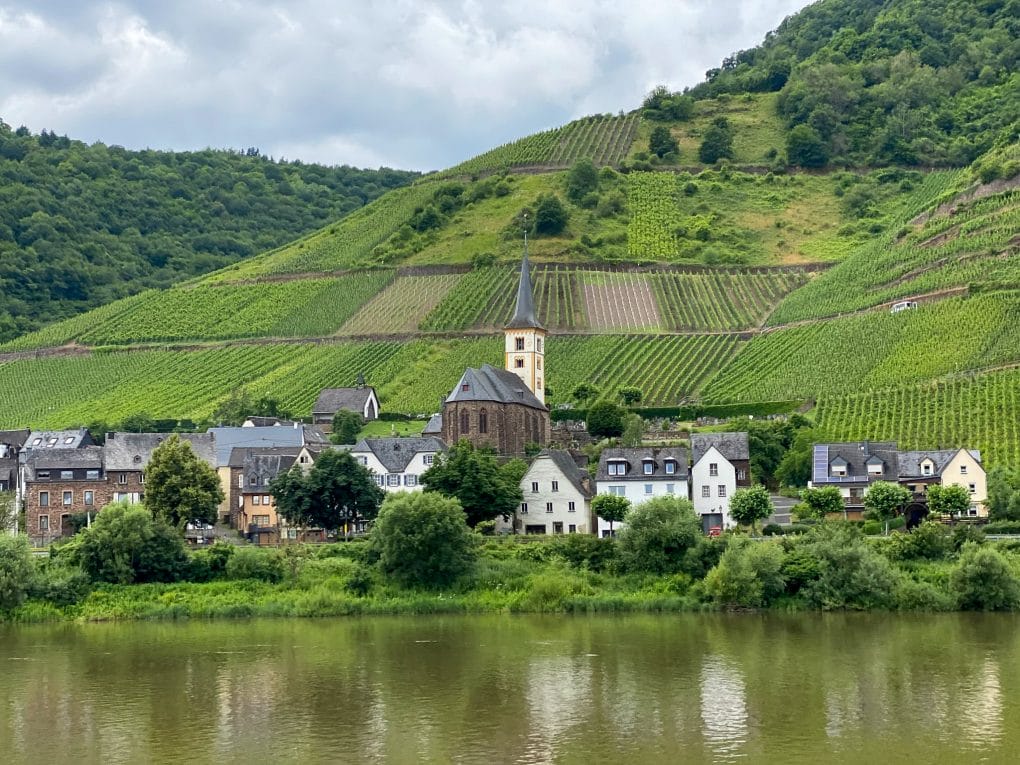
14. Bremm, Rhineland-Palatinate
Population: 850
Bremm is a teeny tiny town nestled along the Mosel River. Admittedly, there’s little to do in the town other than drink riesling and see the ruins of an old monastery. But don’t let that deter you!
The natural wonders surrounding Bremm create a magical backdrop against this quaint town. Here in Bremm, you can hike the steepest vineyard in Europe and catch a view of the stunning Moselschliefe, a picturesque U-bend in the river.
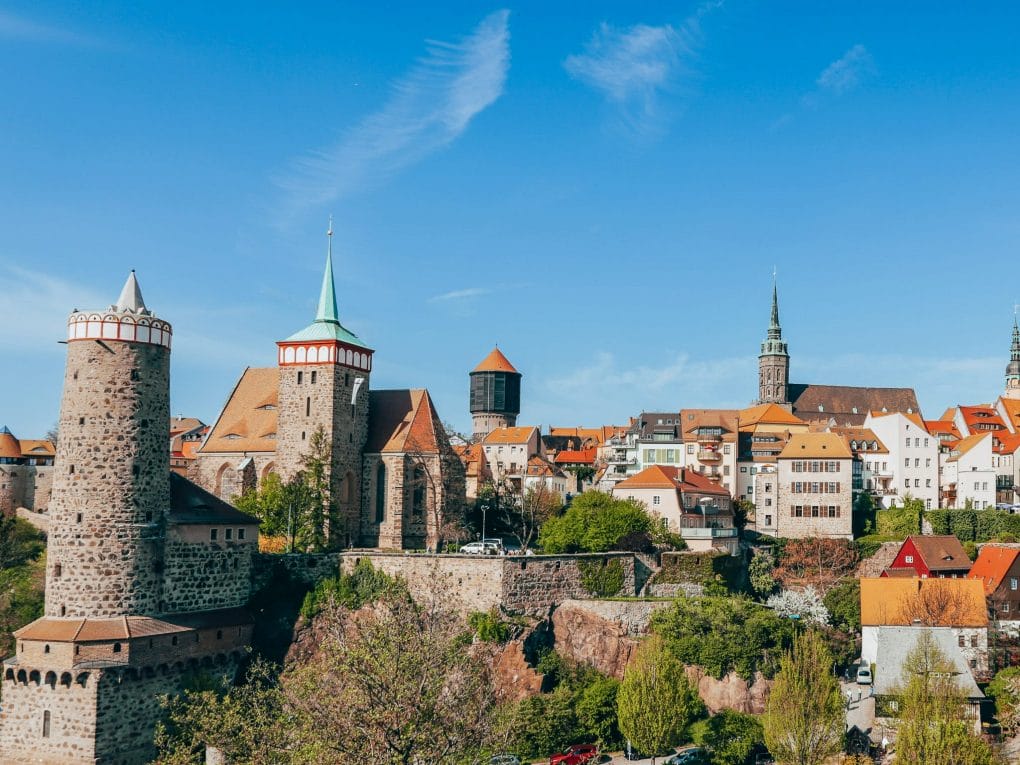
15. Bautzen, Saxony
Population: 40,450
Bautzen, nestled in Saxony’s picturesque rolling hills and meandering Spree River, enchants visitors with its rich history and charming ambiance. Explore the well-preserved medieval Old Town, adorned with stunning Baroque architecture and cobblestone streets.
Bautzen boasts unique cultural sites like the Sorbian Museum, showcasing the region’s Slavic heritage. Delight local cuisine at quaint cafes and immerse yourself in the vibrant festivals celebrating the town’s cultural diversity. Bautzen promises an unforgettable journey through time and tradition.
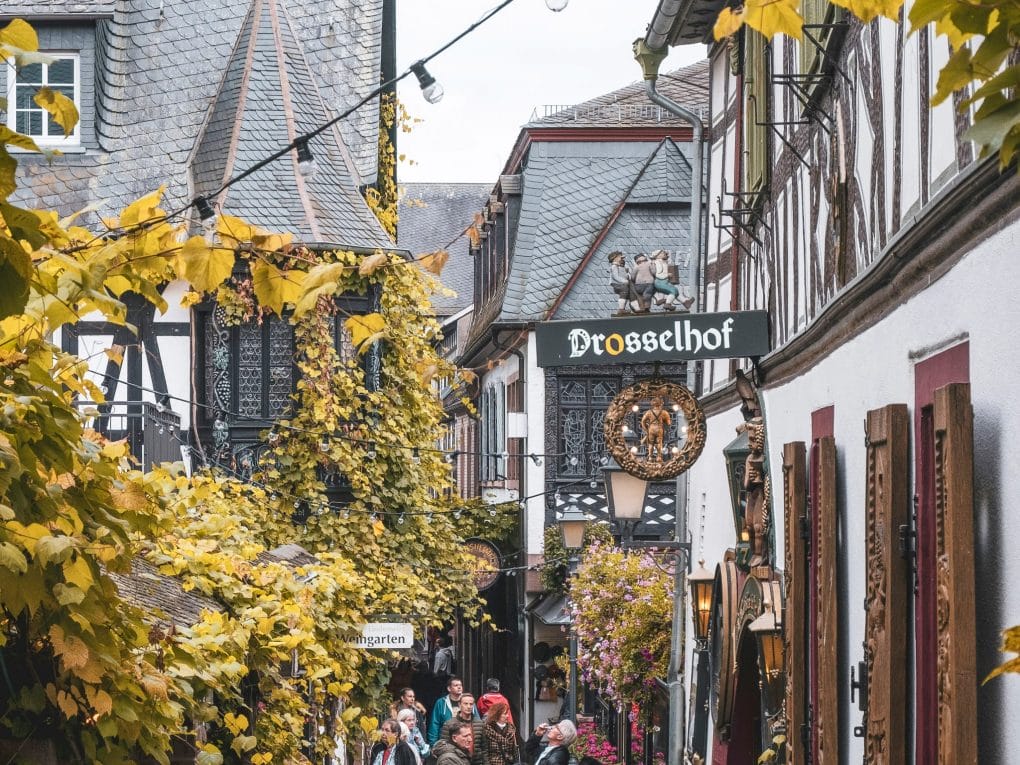
16. Rüdesheim am Rhein, Hesse
Population: 10,050
The Rhine Valley is another of Germany’s most picturesque regions, and Rudesheim am Rhein is a lovely little town to experience it. Vineyards surround the town along the river, which are best viewed from the cable car.
Top attractions in Rudesheim include the Niederwald Monument, the Johannisberg Castle, and the ruins of a 12th century fortress.

